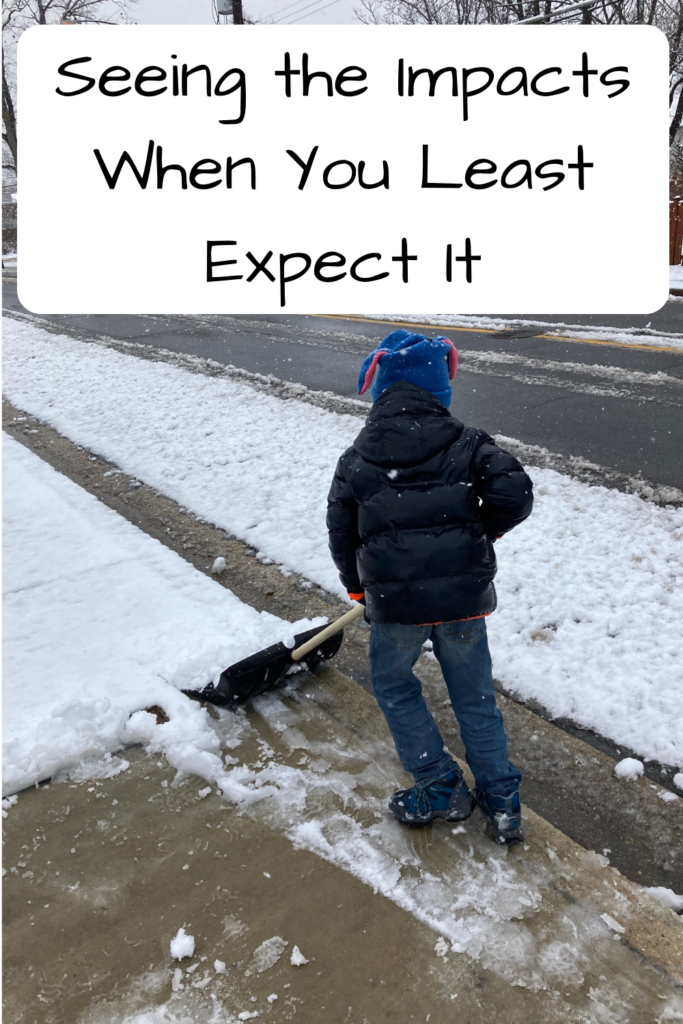
“I want to help!” my older son declared, in that way he does when he feels like life has dealt him a terribly unfair hand.
“Oh! Sure,” I said, handing him the snow shovel. We were clearing the sidewalk of snow, in one of the few times a year Washington D.C. gets it.
Both his tone of voice and demand to help surprised me. He’s a kid for whom chores are like pulling teeth. So volunteering for a hard job that meant I did less work? Excellent. I did want to give him a heads-up though. “The snow is pretty tough to shovel, as there’s a layer of ice underneath. From when we had the freezing rain last night. So try to get under the ice, if you can.”
As he managed the big shovel awkwardly, I tried to both hold my tongue and figure out what inspired this burst of enthusiasm.
I held my tongue because both research and sheer personal experience has taught me that if you critique kids’ work too often, they’ll get frustrated with you and give up. Especially if they’re strong-willed or struggle with constructive criticism. Just like anyone else, right?
As for the enthusiasm, I could only think of two reasons.
One, the sheer challenge of it. He likes physical activity and this was clearly hard.
Two, because of my framing of the task. Indoors chores really only affect us and never have any obvious benefit to him. He doesn’t really give a crap if the kitchen floor is nasty. In contrast, I had explained earlier about how we had to clear the sidewalk so that our neighbors could use it. A lot of people walk past our house to the bus stop next to us. I mentioned that when I was walking to the Metro for work, unshoveled sidewalks made my commute frustrating and borderline unsafe. Rather than saying we shoveled the walk because we “had” to or because we’d get a fine from the city, I framed it in terms of our service and responsibility to others. While he doesn’t always like to admit it, he cares deeply about fairness and other people.
I deeply believe in the power of modeling behaviors. Kids can smell bullshit from a mile away. They may not call you on it, especially if they’ve been discouraged from speaking to adults “that way,” but they’ll know.
But there’s also a lot to be said for giving a context for modeling. Explaining why we do what we do and the motivations for it. That context may turn something that seems inexplicable into something concrete and understandable.
Of course, we don’t want to provide this context in a self-righteous or aggrandizing way. I try to just be matter-of-fact about it. And I’m sure there’s times I’ve just made it more confusing or provided too much information.
But as my kids get older, I’m starting to see those lessons sink in, especially when I don’t expect them to. And every time I do, I get more and more grateful that we’ve had those conversations and will continue to.
(This was first published on Facebook on March 31, 2021.)